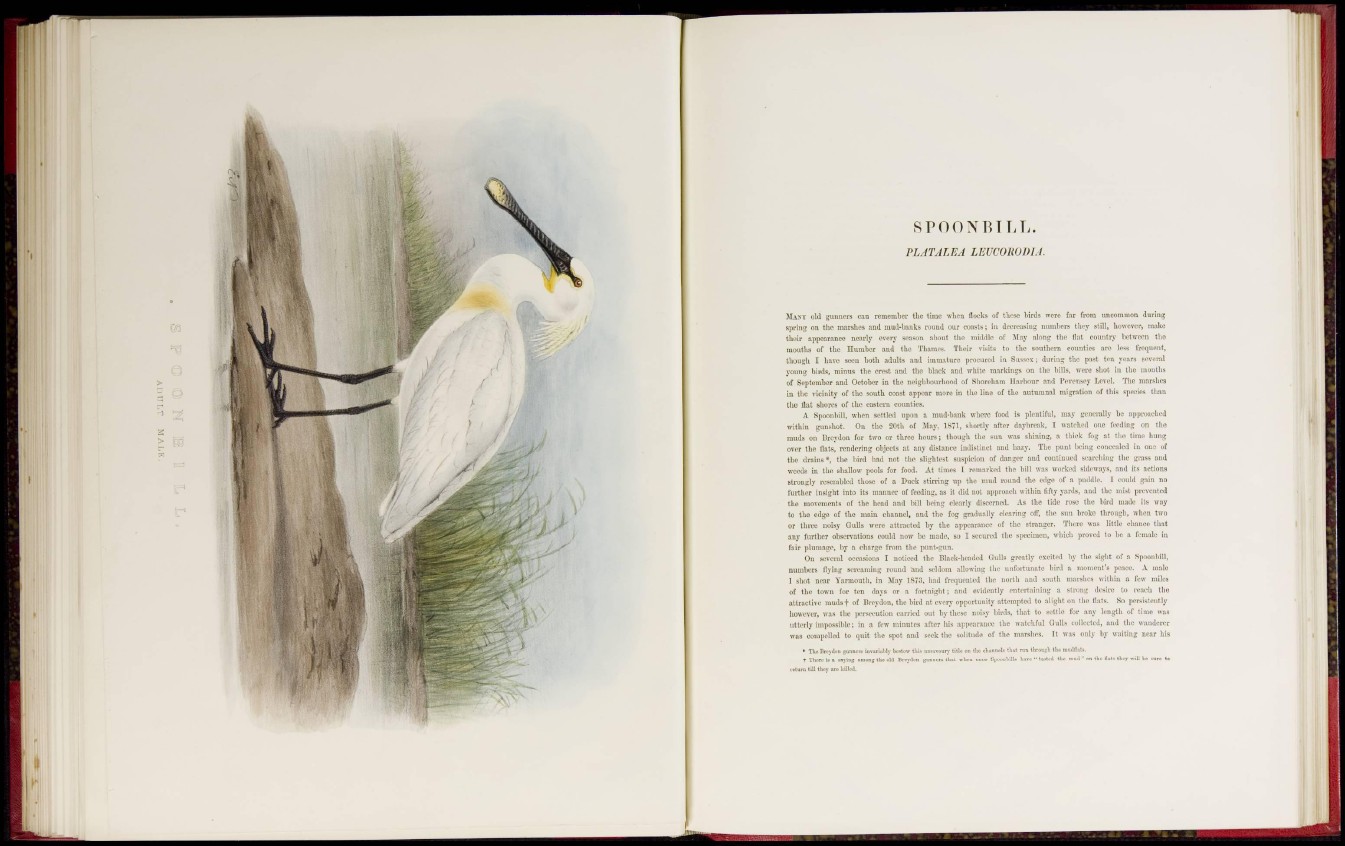
SPOONBILL.
PLATALEA LEUCOBOBIA.
MANY old gunners can remember the time whoa Soda of these birds were far from uncommon during
spring nn the marshes and mud-banks round our coasts; in decreasing numbers they still, however, make
their appearance nearly every season alvout the middle of liny along the flat country ln-tween tho
months of the Tlnmher and the Thames. Their visits to the southern counties are less frerpieul,
though I have seen both adults and immature procured in Susses ; during the past ten years several
young hinds, minus the crest and the black and white markings on the bills, were shot in the mouths
of September and October in the neighbourhood of Shoroham Harbour and I'cveusoy Level. The marshes
in the vicinity of tho south coast appear more in the lino of the autumnal migration of this species than
tho flat shores of the eastern counties.
A Spoonbill, when settled upon a mud-bank where food is plentiful, may generally be approached
within gunshot. On the 20th or May. 1871. shortly after daybreak, I watched one feeding on the
muds on Breydon for two or three hours; though the sun was shining, a thick fog at the time hung
over the flats, rendering objects at any distance indistinct and hazy. The punt Iseing concealed in OH of
tho drains*, the bird had not the slightest suspicion of danger and continued searching the glass and
weeds in the shallow pools for food. At times I remarked the bill was worked sideways, and its actions
strongly resembled those of a Duck stirring up the mud round the edge of a puddle. I could gain no
further insight into its manner of feeding, as it did not approach within fifty yards, and the mist prevented
the movements of the head and bill being clearly discerned. As the tide rose the bird made its way
to tho edge of the main channel, and the fog gradually clearing off, the sun broke through, when two
or three noisy Gulls wore attracted by the appearance of the stronger. There was little chance that
any further observations could now bo made, so I secured the specimen, which proved to be a fowls in
fair plumage, by a charge from the punt-gun.
On several occasions I noticed the Black-headed (lulls greatly excited by the sight of a S| bill,
nuniltcrs flying screaming round and seldom allowing the unfortunate bird a moment's peace. A malo
1 shot near Yarmouth, in May 1873, had frequeulcd the north and south marshes within a few miles
of tin' town for ten days or a fortnight ; and evidently entertaining a Strong desire to roach Unattractive
uiudst of Breydon, the bird at every opportunity attempted to alight on the Hats. So persistently
however, was I he persecution carried out by these noisy birds, that to settle for any length of time was
utterly impossible; in a few minutes after his appearance the watchful Hulls collected, and the wanderer
was compelled to quit tho spot and seek the solitude of tho marshes. It was only by wailing near his